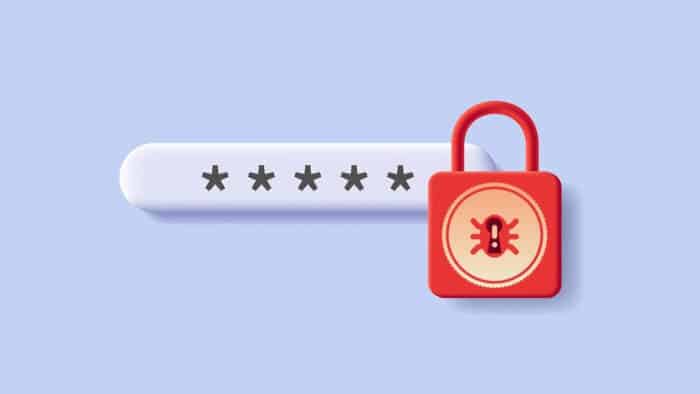In today’s world, we rely heavily on the internet to carry out many of our daily activities. From online shopping to banking and social media, we use a wide range of websites and applications that require us to create accounts with login credentials. It’s important to ensure that our online accounts are secure, and one of the best ways to do that is by using strong, unique passwords for each account.
However, our brains can’t remember dozens of complex, unique passwords for all our online accounts. Remembering even a single complex password can be a challenge, let alone trying to remember different passwords for different accounts. This is why many people resort to the unsafe, risky practice of reusing the same often weak, easy to recall password across their online accounts.
Unfortunately, a weak password is just as easy for criminals to hack as it is for you to remember. Once your password has been compromised, you’re vulnerable to credential stuffing attacks. It can result in many of your online accounts being breached. At that point, you may as well tweet out all of your online login credentials to the world. So, what’s the solution? use password managers.
Protecting Your Online Accounts: The Advantages of Using a Password Manager

A password manager is an online service that provides an encrypted vault where you can store the login credentials for all of your online accounts so you don’t have to remember them. You only need to remember a single master password to access the encrypted vault — from which you can access all of the other passwords you have stored. Password manager services usually offer user friendly web interfaces, apps, or browser extensions where you can access your encrypted vault using your master password.
The best password managers are cross platform compatible and can automatically sync your entire vault across all of your devices. This means that once you’ve entered your passwords into the password manager on one device, they’ll automatically show up on all your other devices on which you’ve installed the app — whether you’re using Windows, MacOS, Linux, iOS, Android, or a browser extension. Keep in mind that, by their nature, password managers are extremely attractive targets for cybercriminals. So it’s important that you choose one with a track record for security and transparency.
One of the biggest advantages of using a password manager is that it allows you to create strong, unique passwords for each of your accounts. NordPass estimates that the average internet user has between 70 and 80 passwords. It’s virtually impossible to remember each individual complex password that you should be creating for each account. It means you need another mechanism to keep track of them all.
Using a password manager is a far more effective and convenient mechanism for keeping track of your passwords. You can use one to create strong, unique passwords that are exponentially more difficult to hack than something like Fido1986. And if you’re unsure of how to create a strong password, a good password manager will always include a strong password generator feature that will create them for you.
Another advantage of password managers is that they can help guard against phishing attacks. Phishing attacks are a type of cyber attack where a criminal tries to trick you into giving them your login credentials by posing as a legitimate website or service. If the password manager doesn’t recognize the URL on which you’re entering your login credentials (i.e., if you’re on a phishing site), its autofill function won’t offer to fill in the credentials.
Password managers have benefits beyond just storing passwords. You can use your password manager to securely store other items. Including credit card numbers (to autofill in online stores), identification documents, travel documents, medical records, PIN codes, bank account numbers, and secure notes. Many of the top password managers also offer additional features like cloud storage and attachments, password health reports, data breach notifications, and dark web monitoring (which alerts you if any of your personal information has been detected on the dark web).
You can also use your password manager to securely share passwords and other items with family members, friends, or other trusted contacts. This is particularly useful for families or teams who need to share access to certain accounts or documents.
So, which password manager should you choose? There are many different options available. But some of the best password managers in 2023 include Bitwarden, 1Password, NordPass, Keeper, and Dashlane. It’s important to choose a password manager with a proven track record for security and transparency. As they are attractive targets for cybercriminals.
The Best Password Manager in 2023
To help your decision in choosing a password manager, here are some of the best options available in 2023:
Bitwarden
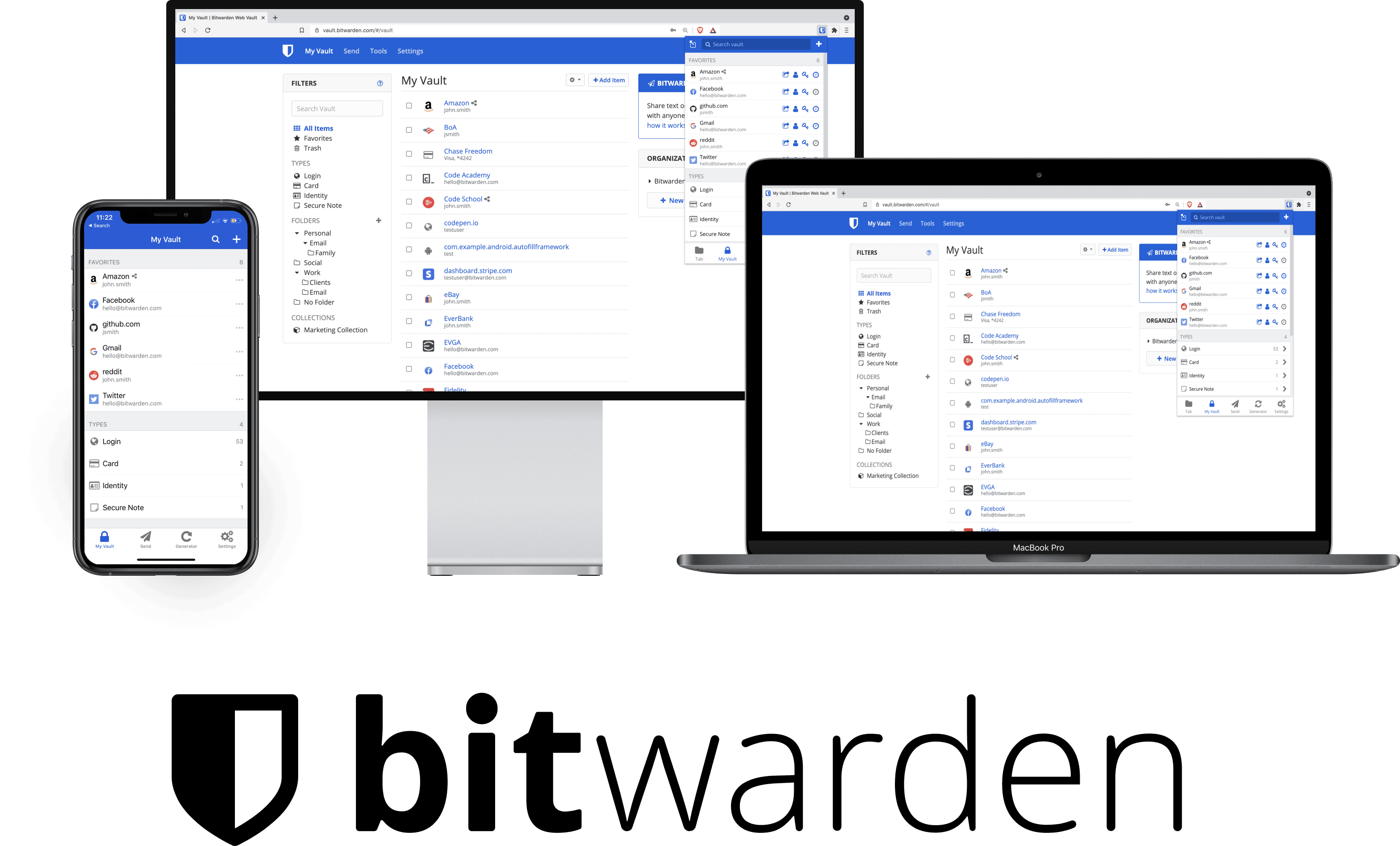
If you’re looking for a password manager that’s well rounded, secure, transparent, budget friendly and easy to use, Bitwarden is a solid choice. In fact, it’s at the top of our list of the best password managers for a number of reasons.
First and foremost, Bitwarden is fully open source and audited annually by third party cybersecurity firms. It sets it apart from its peers in an industry that depends so profoundly on trust. This means that you can trust Bitwarden to protect your passwords and other sensitive information.
Another thing that sets Bitwarden apart is its unbeatable free plan. While other password managers limit the number or types of devices you can use, or the number of vault items you can store, Bitwarden’s free plan lets you store an unlimited number of passwords and use it across an unlimited number of devices. It also offers many premium tier features like secure sharing with another user, access to Bitwarden Send, two factor authentication, encrypted vault export, and a username and password generator.
If you need more advanced features, Bitwarden’s premium plans offer full vault health reports, 1GB file storage, emergency access, Bitwarden authenticator, and advanced multifactor authentication with YubiKey, FIDO2 and Duo. The premium plans are budget friendly at $10 per yearFvpn for individuals and $40 per year for families. It allows for up to six users.
You can access your Bitwarden vault using its web client or its apps across virtually any platform you can think of, including Windows, MacOS, Linux, Android, iOS and browsers like Chrome, Safari, Firefox, Brave, DuckDuckGo and even the Tor Browser. Bitwarden’s interface is simple and easy to use across platforms. And sharing passwords and other vault items with others is straightforward.
Furthermore, you can customize your overall experience with a lot of options, from the look and feel of the app to browser integrations and universal and granular security settings. Through the web interface, you can also access various reports that flag whether your email address has been included in a data breach, which accounts have reused passwords or weak passwords, and if any accounts are still using passwords that have been exposed in a data breach.
All in all, Bitwarden is a top tier password manager that offers both a free and premium plan with unbeatable features, security, and transparency.
1Password

1Password is a password manager that can be in use on all your devices and offers several helpful extras. It is designed to be user friendly and has a sleek interface that works seamlessly across platforms. The autofill feature is particularly handy. Allowing you to log in to your accounts and enter credit card information with ease. Sharing passwords with others is also simple, and you can do so securely whether or not the recipient uses 1Password.
Furthermore, 1Password offers a password health report through its Watchtower feature. This feature includes integration with HaveIBeenPwned, which can provide information on vulnerable passwords exposed in data breaches. It can also detect weak or reused passwords and flag any sites where two factor authentication has not been enabled.
One of the unique features of 1Password is its Travel Mode. This feature is especially useful for people who travel frequently, particularly to countries with strict government surveillance. When activated, Travel Mode erases any vault items that you haven’t marked as “Safe for Travel” from all your devices. This helps to ensure that sensitive information remains inaccessible to anyone who might ask to inspect your device. When you deactivate Travel Mode, all the hidden items are automatically restored.
It’s worth noting that 1Password is slightly more expensive than some other password managers. With prices starting at $36 per year for individual users and $60 per year for families. However, the service does offer a 14 day free trial for those who want to try it out before committing. Overall, 1Password is a highly secure and user friendly password manager that is packed with useful features, including the unique Travel Mode.
NordPass
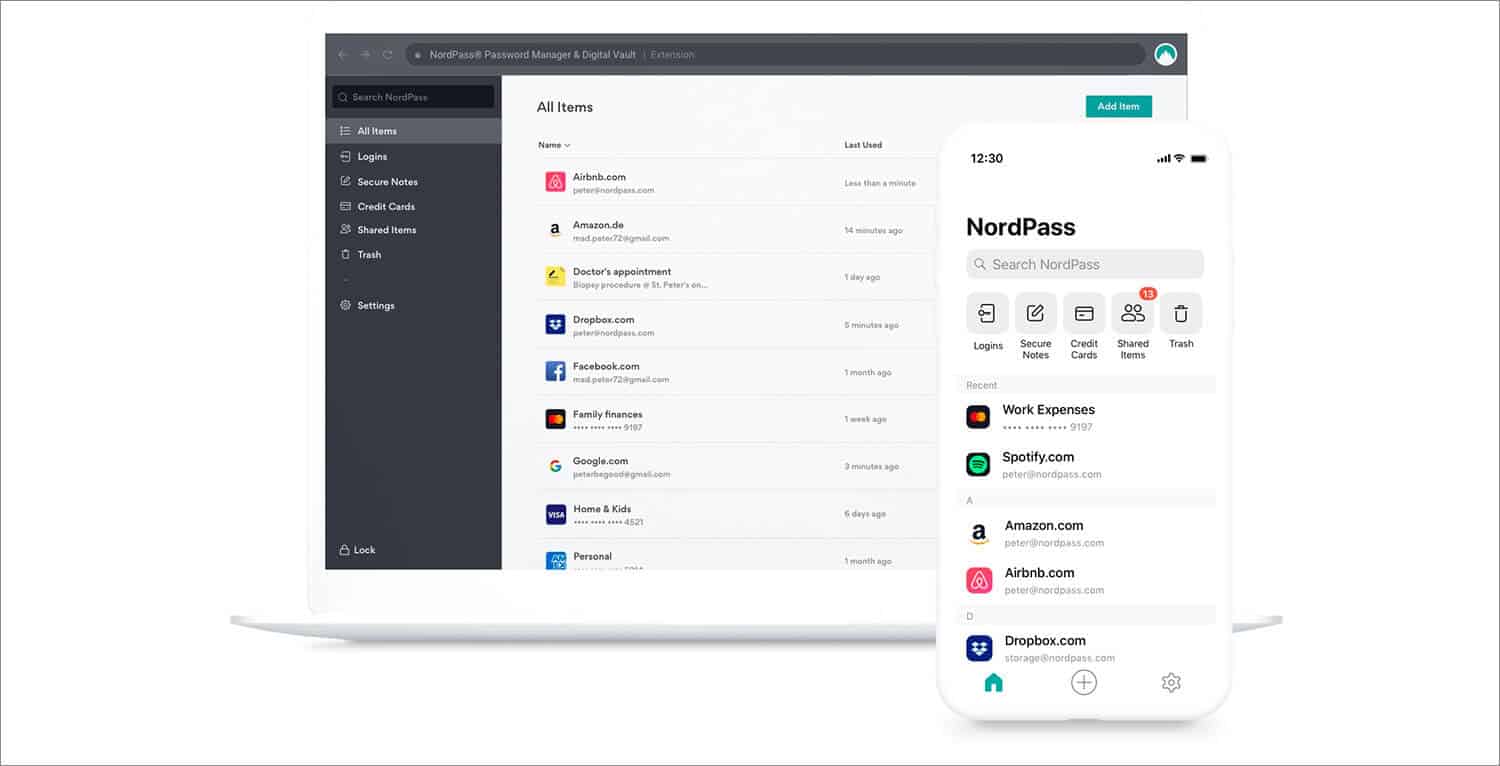
NordPass is a password management solution created by Nord Security, the same company behind NordVPN. Also, NordPass has got an update with new features that have brought it up to speed with its competitors. Making it one of our top recommended password managers. If you’re already using NordVPN or other Nord Security products, NordPass is definitely worth considering.
Although not as comprehensive as Bitwarden’s free tier, NordPass’s free plan is still very useful. The free plan allows you to store an unlimited number of vault items on all your devices. It also includes basic features like a password generator, advanced multifactor authentication, and automatic sync. The premium plans offer even more features, such as password health reports, data breach scanner and monitoring, secure sharing, password history, emergency access, passkey integration, and up to 50 file attachments per vault item, totaling up to 3GB.
The NordPass interface is user friendly and available on all major platforms, including Windows, Mac, Linux, Android, and iOS. It also has browser extensions for Chrome, Firefox, Edge, Brave, Safari, and Opera. The free plan is great for those who need a password manager without spending money. However, the premium tiers cost $24 per year for individuals or $44 per year for a family account that covers up to six users. If you sign up for a free plan, you’ll receive a generous 30 day free trial of Premium. Additionally, all Premium subscriptions include a 30 day money back guarantee.
Keeper
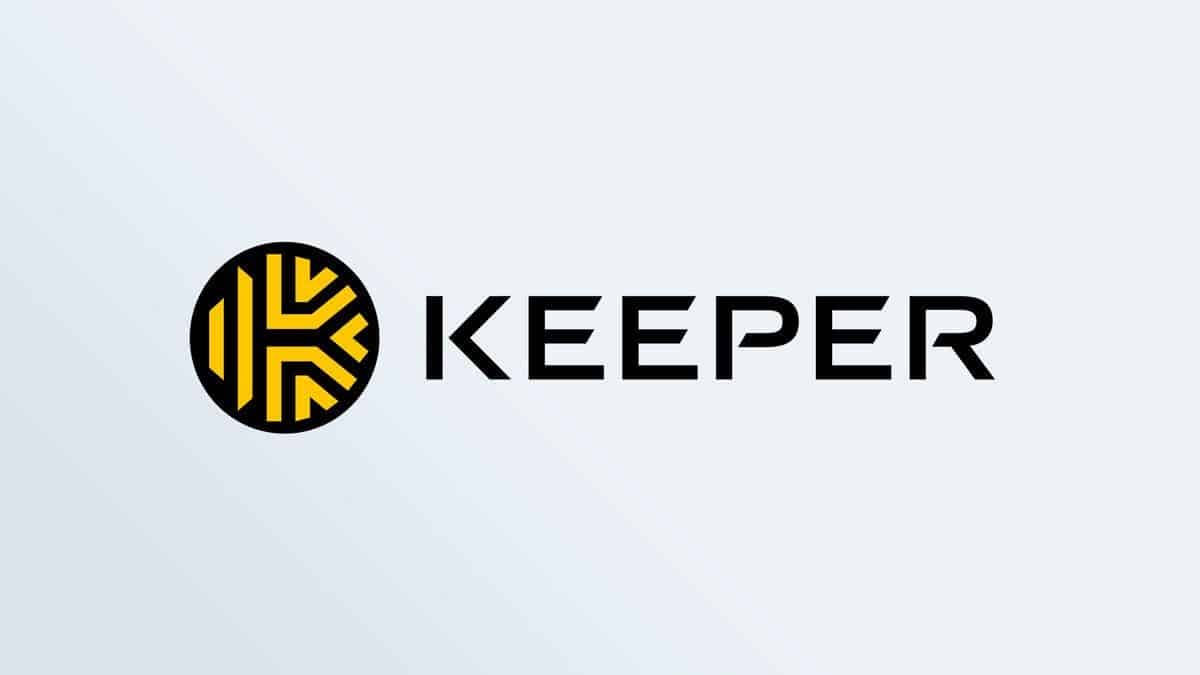
Keeper is a password manager that offers a secure and reliable way to manage your passwords. It has a user friendly interface and all the necessary features for password management, as well as some extra ones. With Keeper, you can store and sync an unlimited number of vault items across multiple devices. Although the number of platforms it supports is a bit more limited than other password managers.
You can access your Keeper vault through its web interface or its apps on Windows, MacOS, Linux, Android and iOS. However, Keeper’s browser extensions are only available for Chrome, Firefox, Safari, Edge and Opera, which is fewer than what most other premium password managers offer.
Keeper allows you to securely share your vault items either indefinitely or for a set amount of time. Additionally, it offers a dark web monitoring feature called BreachWatch that continuously monitors the dark web and alerts you if it detects any compromised credentials. Another useful feature is Keeper’s offline mode, which allows you to access your vault items even when you’re offline. This can be especially helpful if you’re traveling or in areas with spotty internet.
Although Keeper doesn’t have a free plan, it does offer a 30 day free trial so you can try it out. The standard pricing for individuals is $35 per year, which is on par with 1Password. However, its family plan costs $75 per year for a family of five and includes 10GB of file storage, making it a solid option for anyone who needs a family plan with generous amounts of cloud storage and continuous dark web monitoring or may need offline access to their vaults while traveling or in areas with spotty internet.
Dashlane
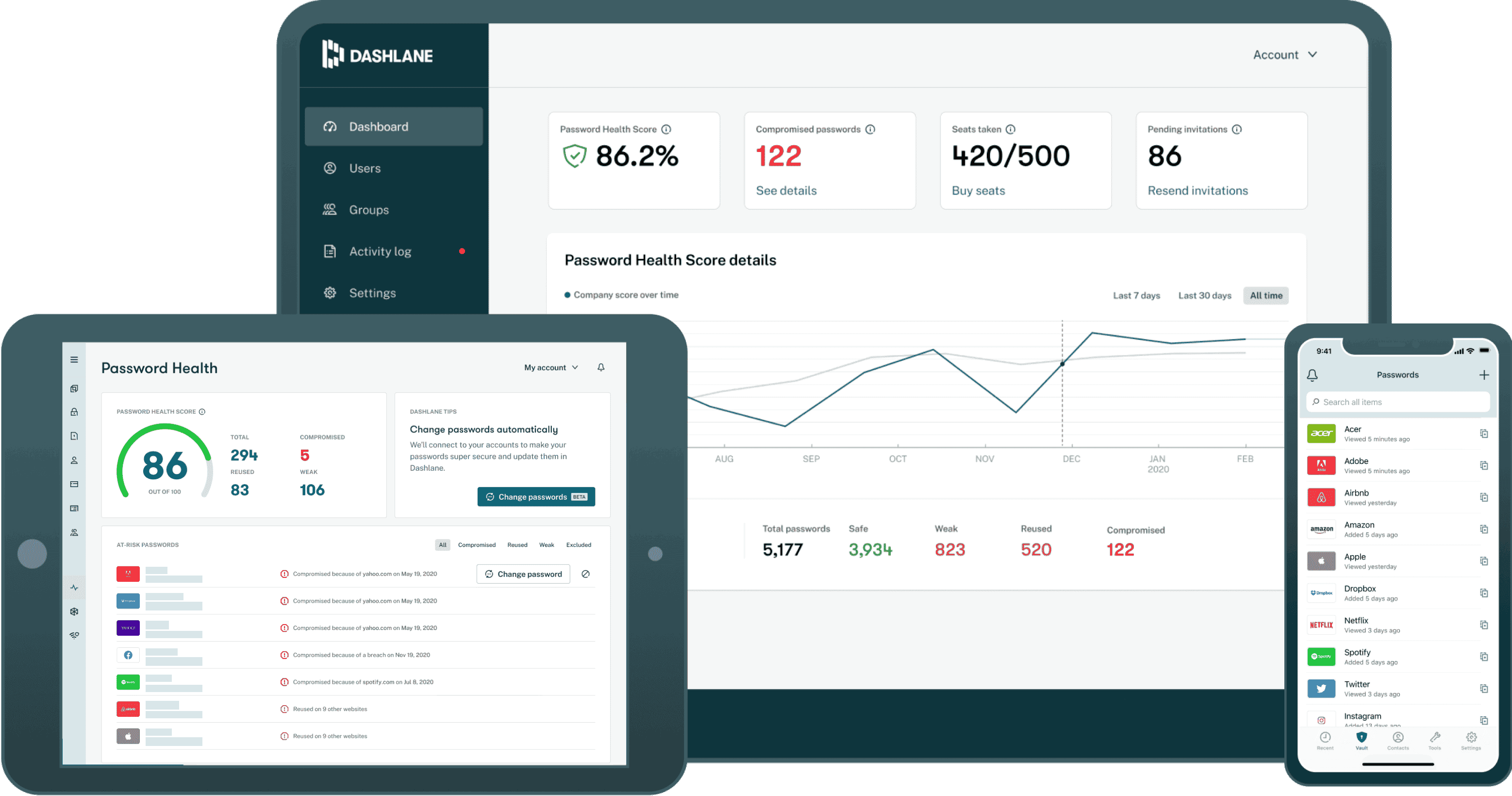
Dashlane is a password manager that can be used by individuals or larger families or groups of friends who are willing to split the cost of an expensive family plan. The free plan allows users to store an unlimited number of passwords. But it is limited to a single device, which may not be sufficient for users with multiple devices.
During testing, the MacOS app was a bit buggy in certain instances while sharing vault items. But representatives from the company assured that they were working on resolving the issue. On further testing, the shared vault items were no longer disappearing after sharing.
Dashlane’s password generator is not as robust as some other password managers, but it is sufficient for most users. It offers enough options for customization, and users can set preferences for each individual login item to log them in automatically, autofill on the exact URL or require their master password to unlock the login information.
The individual plan costs $33 per year, which is about the same as other providers’ individual plans. However, the family plan costs $90 per year, which is notably more expensive than what most other providers offer. The family plan covers up to 10 users and includes access to a virtual private network from Hotspot Shield. The VPN service is available only to the admin of the family plan. And there’s no option to purchase a family plan for less money without the VPN or by reducing the number of licenses in the plan.
For most people, 10 users is probably too many and not worth the extra cost compared with other password managers. But if users have a large family or want to share a password manager with many friends, then Dashlane could be a suitable choice.
Verdict
In conclusion, the growing complexity of managing multiple online accounts necessitates the use of password managers as a practical and secure solution. With their ability to generate strong passwords, securely store sensitive information, and offer additional features, password managers have become essential tools in maintaining online security and convenience in the modern era.

